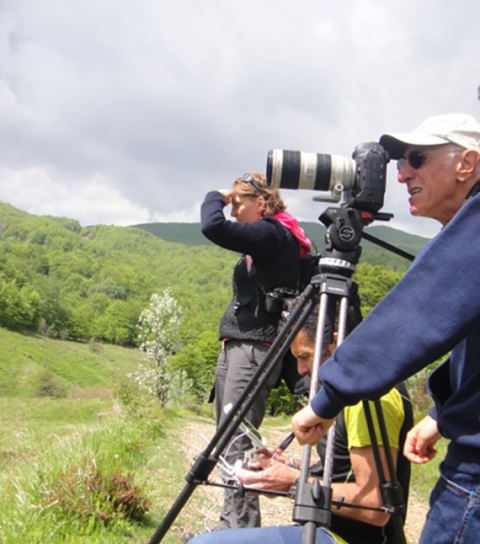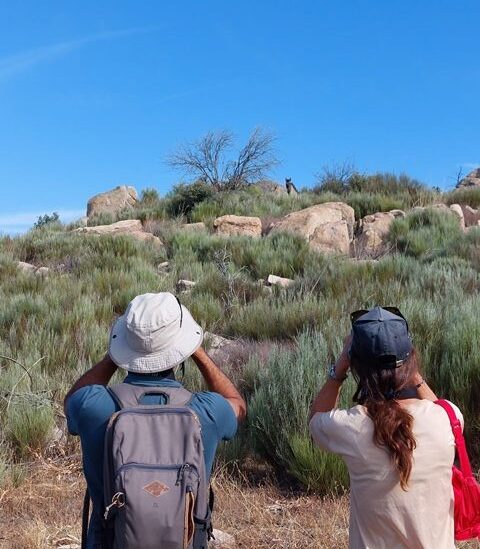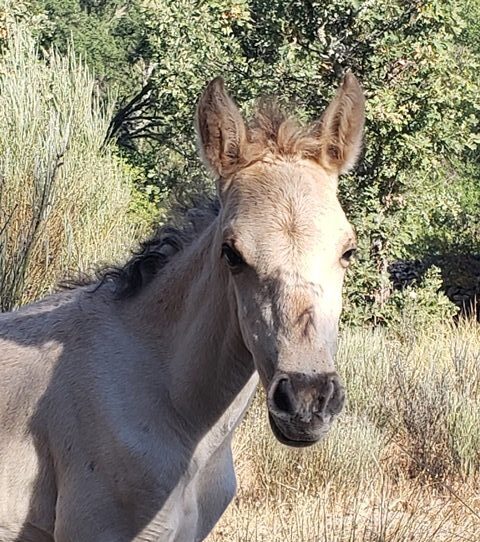Welcome to the unveiling of our latest project
Welcome to the unveiling of our latest project, Wild Horse Europe. In our pursuit of reconnecting people with the raw beauty of nature, we present an opportunity to observe the majestic wild horses in their natural habitat across Europe.
This year, we proudly announce the launch of our expedition in Spain and Portugal, besides Italy already in the program since may years. The locations have been carefully selected after rigorous inspection visits to ensure minimal human impact.
Our Mission
At Animantia, our mission is to foster a deep appreciation for the wild horse and the whole wildlife while promoting educational programs and research projects. Through Wild Horse Europe, we aim to provide horse lovers and professionals with a unique and immersive experience, allowing them to learn from the untamed grace of wild horses while respecting their natural environment and understanding the role they have in the ecosystem.
Objectives
- 1To offer curated expeditions to observe wild horses in Europe, focusing on Italy, Spain and Portugal for the inaugural year.
- 2To prioritize the conservation of wild horse natural habitats by selecting locations with minimal human interference.
- 3To educate participants about the real natural life of horses, the ecological significance of wild horse populations and the importance of preserving their habitats.
- 4To promote educational programs on equine ethology to learn what a normal behavior of a horse is.
- 5To prioritize the well-being of horses in the world.
Key Features
- 1Expert-Guided Tours: Our expeditions are led by knowledgeable professionals with expertise in equine ethology and conservation, ensuring a professional and informative experience for participants.
- 2Exclusive Access: Through our meticulous site selection process, we provide access to remote areas where wild horses roam freely, away from human managed sites.
- 3Minimal Environmental Impact: We adhere to strict environmental guidelines to minimize our footprint, ensuring that our presence does not disrupt the natural behavior of the wildlife.
- 4Educational Programs: Participants will have the opportunity to engage in educational sessions conducted by ethologists, conservationists, learning about the unique behaviors and habitats of wild horses. To learn from horses on natural condition is the only way to understand deeply who the horse is.
- 5Local Engagement: We help local communities to promote conservation efforts and support wild horses development initiatives in the regions we operate.
Upcoming Expeditions
Wild Horse Europe is more than just a journey into the wilderness; it’s a testament to our commitment to wild horse study and conservation. Join us in our quest to preserve the natural heritage of Wild Horses in Europe and embark on an unforgettable adventure with Animantia. Let’s explore, learn, and cherish the beauty of wild horses together.
Contact us for group bookings and customized dates.
Liguria: Since 2010, we introduced the horses in the Aveto Park (known now as the Aveto horses) to students and researchers around the world. In this site horses rewilded since many years when local breeders abandoned their homes. Here we can admire two main ancient breeds the Bardigiano and the Franches Montagnes,
Tuscany: in this very well know touristic region there is a special location, not far from Florence, that guests some strong and proud horses living wild with minimum human contact.
Estremadura
In the mountains of Extremadura, western central Spain, some herds of Pottokas live as if completely wild, without any management, feeding, selection or medication. Pottokas are primitive Basque ponies with little, if any, genetic signs of domestication: the nearest we have to a genuine wild horse.
Guadaljara
two important ancient breeds have been inserted in a rewilding project and released in the Iberian Highlands, The Przewalski and the Serrano – A unique opportunity to witness the behavior during the rewilding adaptation of those breeds.
Greater Côa Valley
Through this haven for biodiversity an ancient breed of horses has being reintroduced and now roam freely, the Sorraias. The Sorraia horse, a native Portuguese breed, has a population of only about 200 individuals worldwide. Experience the tranquility of pristine forests and rolling hills as you observe these iconic animals in their element.
Peneda Gerés
70 thousand hectares of pure nature where you can meet the Garranos. They live integrated into a mountain ecosystem generally at altitudes above 700m, where it disputes territory with its main predator, the wolf. Due to its history and origin, this autochthonous breed with millenary roots has a strong historical expression in the northern region of Portugal and Galicia.
CALENDAR
Education: Why wild?
Our main goal is to educate to fully understand what the essence of the horse is
Observing wild horses is of paramount importance for gaining professional equine training skills, especially when dealing with domestic horses. While domestic horses have been bred and raised in conditions vastly different from their wild counterparts, understanding the natural behaviors and adaptations of wild horses offers invaluable insights into the equine psyche and optimal training methods.
First and foremost, wild horses epitomize the essence of natural equine behavior. Their daily lives revolve around their essence honed over millennia of evolution, making them ideal subjects for studying equine behavior in its purest form. Observing wild herds provides a firsthand understanding of how horses communicate, establish social hierarchies, and live their environment.
Moreover, wild horses inhabit diverse landscapes, from grassy plains to rugged mountains, forcing them to adapt and develop a wide range of survival skills. These adaptations include efficient movement over varied terrain, feet adaptation, foraging techniques, and evasion tactics against predators. By observing wild horses in their natural habitats, you can glean valuable insights into how horses utilize their bodies and minds in different situations, which can inform training practices aimed at enhancing physical and mental capabilities in domestic horses.
Furthermore, wild horses exhibit strong social structures within their herds (or families), characterized by intricate hierarchies and refined communication. Understanding these dynamics is crucial for fostering positive relationships and establishing trust when working with domestic horses. Observing how wild horses establish and maintain social order can inform about effective approaches for building respect and cooperation.
Importantly, observing wild horses also highlights the significance of environmental enrichment and natural stimuli in promoting equine welfare. Wild horses engage in a variety of natural behaviors, such as grazing, roaming, and socializing, which are essential for their physical and psychological well-being. In contrast, domestic horses often face restrictions in their living environments, leading to potential behavioral issues and decreased welfare. By studying wild horses, professionals and horse lovers can develop enrichment strategies and management practices that mimic natural conditions, thereby enhancing the welfare of domestic horses under their care.
Incorporating insights from wild horse observation into training practices can promote better communication, welfare, and overall success in managing and working with domestic horses.




